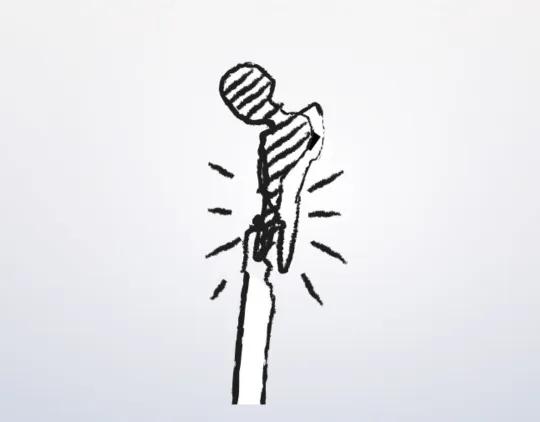Resection arthroplasty
1. Principles
Resection arthroplasty should be used for a joint that is not deemed as salvageable, most commonly due to infection or bone loss.
2. Approach
The surgeon should use the surgical approach that is the most familiar to him/her for any total hip arthroplasty, such as:
- Anterolateral approach
- ASIS osteotomy
- Direct anterior approach
- Direct lateral approach
- Posterolateral approach
The patient is placed in a supine or a lateral position.
3. Resection
Exposure of the acetabular component
Place retractors to expose the acetabulum.
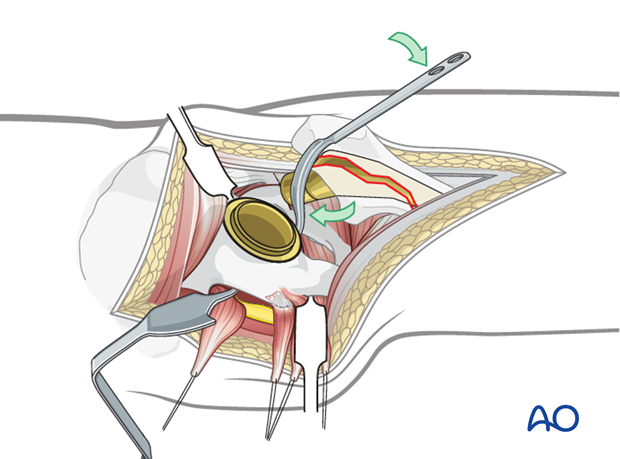
Acetabular component without screws
If acetabular component is not secured with screws, utilize acetabular osteotome system to disengage the bone/prosthesis interface.
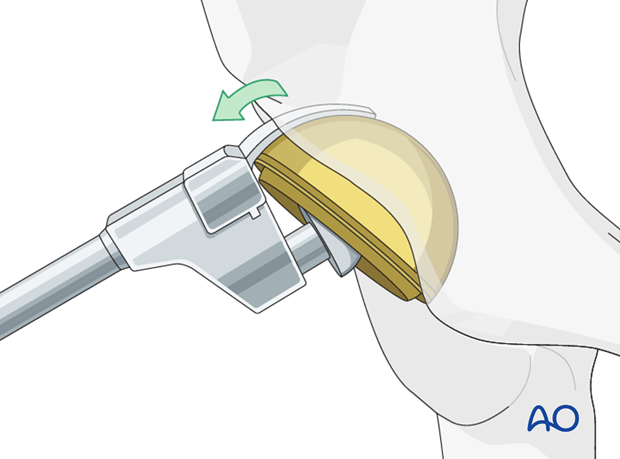
Once the component is loose, remove it with available equipment (bone hook, pliers, vice grips, kocher, etc.).
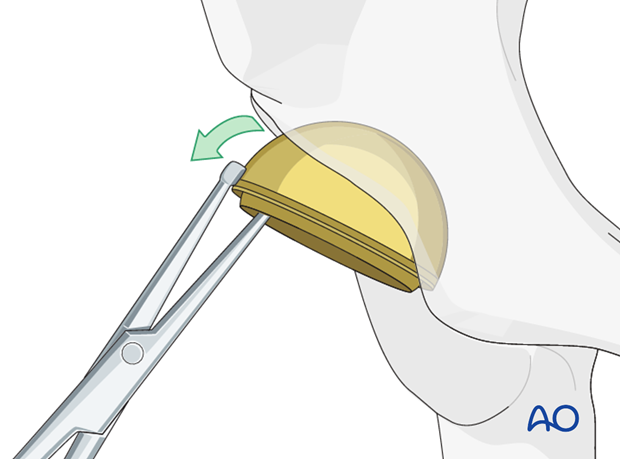
Acetabular component secured with screws
If acetabular component is secured with screws, remove the polyethylene portion to expose the screws.
There are two commonly used techniques for bearing removal:
- Use of an osteotome at the liner-shell junction to lever and to remove the liner.
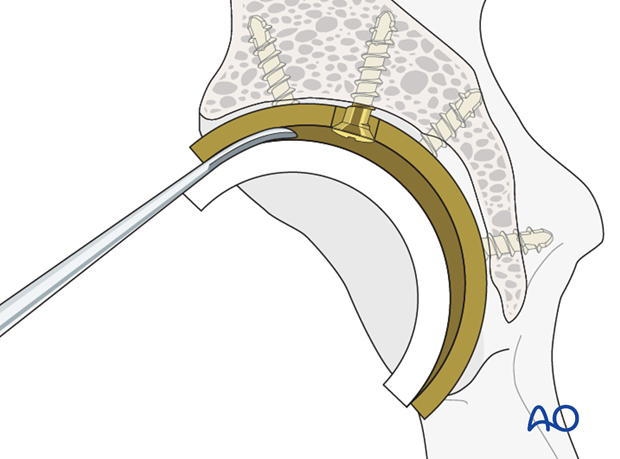
- Use a threaded extraction tool or cancellous screw to push out the liner
In the event neither technique is successful, the liner should be sectioned with a high-speed burr in order to access the screws. Forceful extraction of the cup with the screws in place will result in major disruption of the acetabulum and substantial neurovascular injury.
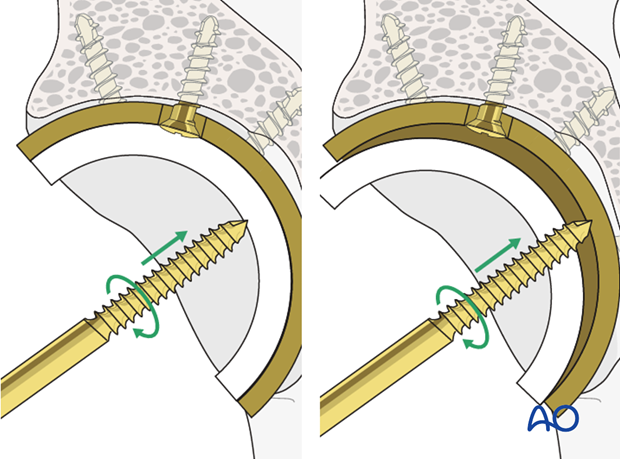
Remove the screws.
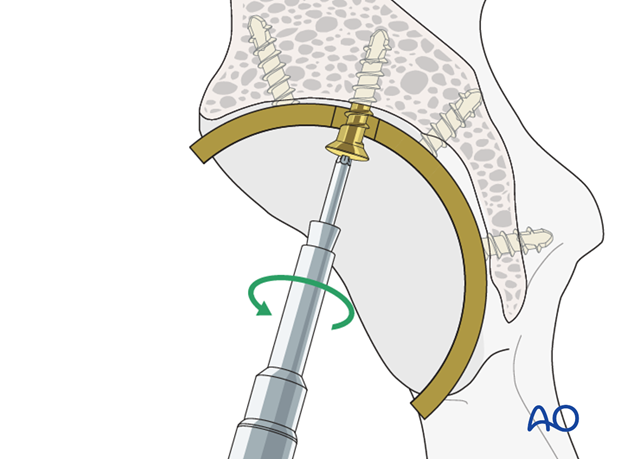
Utilize acetabular osteotome system to disengage the bone/prosthesis interface.

Once the component is loose, remove it with available equipment (bone hook, pliers, vice grips, kocher, etc.).

4. Aftercare
Physiotherapy guidelines
Imaging
Follow-up radiographs should be per surgical protocol.
